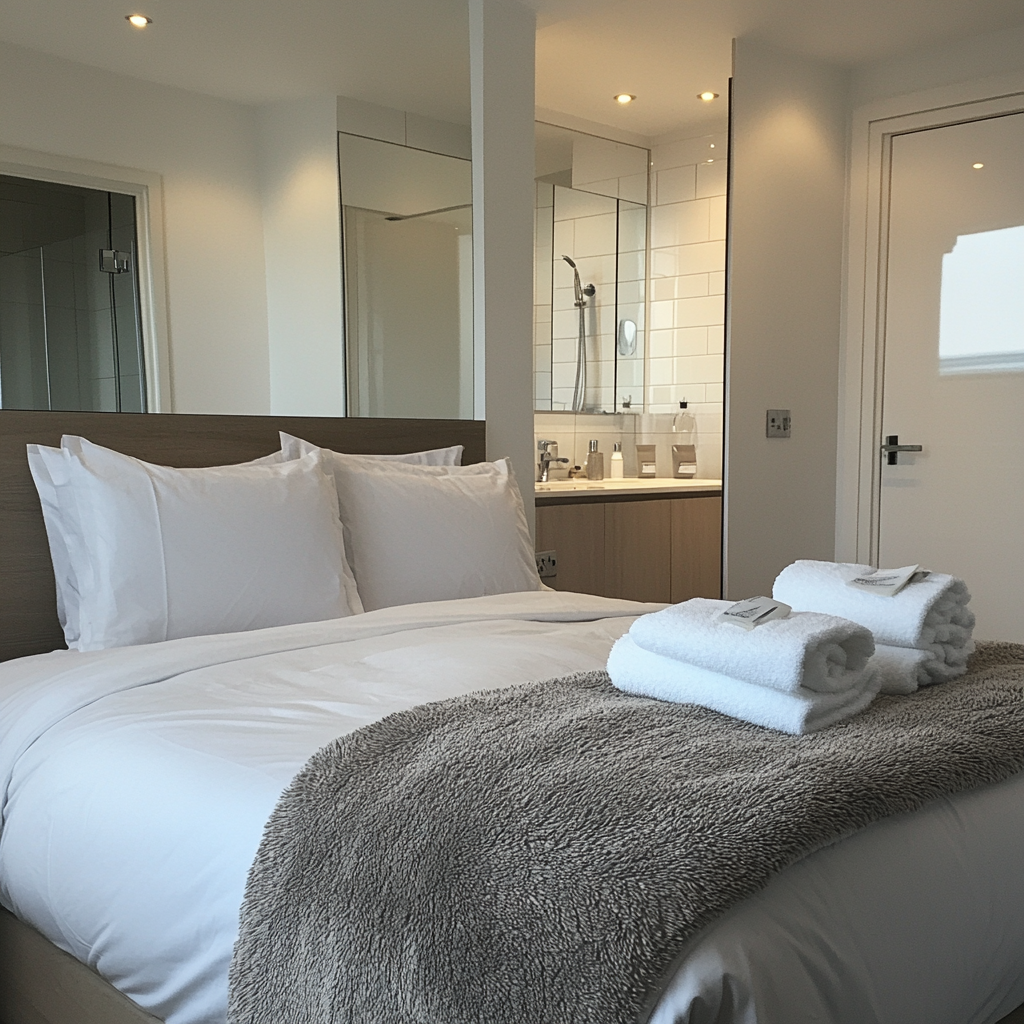The UK is experiencing a surge in the popularity of serviced accommodations, transforming the hospitality landscape.
The Evolution of the Hospitality Sector in the UK
The hospitality sector in the UK has undergone significant transformations over the past few decades. Traditional hotels and bed-and-breakfasts have long been the mainstay of the industry, catering to both domestic and international tourists. However, the rise of serviced accommodations represents a new chapter in the UK's hospitality narrative.
Initially, serviced accommodations were seen as a niche market, primarily catering to business travelers needing short-term stays. Over time, this market has expanded, attracting a diverse demographic, including leisure travelers and families seeking more flexible and home-like lodging options. This evolution reflects broader changes in consumer preferences and the increasing demand for personalized travel experiences.
Key Factors Driving the Popularity of Serviced Accommodations
Several factors contribute to the growing popularity of serviced accommodations in the UK. One significant driver is the flexibility and convenience these accommodations offer. Unlike traditional hotels, serviced apartments provide guests with the ability to cook their meals, do laundry, and enjoy more living space. This makes them particularly appealing for longer stays.
Another important factor is cost-efficiency. Serviced accommodations often prove to be more economical than hotels, especially for extended stays, as they can offer lower nightly rates and the potential to save money by preparing meals in-house. Additionally, the rise of digital nomadism and remote work has spurred demand for accommodations that combine the comforts of home with the amenities of a hotel.
Comparing Serviced Accommodations to Traditional Hotels
When comparing serviced accommodations to traditional hotels, several distinctions stand out. Serviced accommodations typically offer more space, including separate living, sleeping, and dining areas, which can enhance comfort for guests. This makes them particularly attractive to families and groups.
Moreover, serviced accommodations often provide a higher level of privacy and autonomy compared to hotels. Guests can enjoy the freedom to come and go without the formality of hotel check-ins and check-outs. On the other hand, traditional hotels may offer more comprehensive services, such as daily housekeeping, room service, and on-site dining options, which some travelers may prefer.
The Impact of Technology on Serviced Accommodations
Technology has played a pivotal role in the growth of the serviced accommodation sector. Online booking platforms and apps have made it easier for travelers to find and book serviced apartments, often at competitive rates. These platforms also provide user reviews and ratings, helping guests make informed decisions.
Additionally, advancements in smart home technology are being integrated into serviced accommodations, enhancing the guest experience. Features such as keyless entry, smart thermostats, and voice-activated assistants can make stays more convenient and comfortable. Property management systems and digital concierge services further streamline operations, allowing for efficient management and improved guest satisfaction.
Future Trends in the UK Serviced Accommodation Market
Looking ahead, several trends are likely to shape the future of the serviced accommodation market in the UK. One key trend is the increasing emphasis on sustainability. As travelers become more environmentally conscious, serviced accommodations are adopting eco-friendly practices, such as energy-efficient appliances, recycling programs, and sustainable building materials.
Another trend is the growth of hybrid models that combine elements of serviced accommodations and traditional hotels. These hybrid properties may offer the spaciousness and amenities of serviced apartments while providing some of the services and facilities typical of hotels. Additionally, as remote work continues to gain traction, the demand for flexible and long-term lodging solutions is expected to rise, further boosting the serviced accommodation sector.

